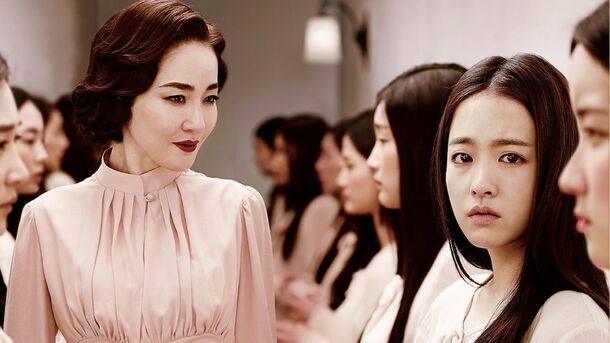10 K-Horrors that Make You Question the Patriarchal Society

These movies fit perfectly into the feminist paradigm.
There are many allusions to female and queer experiences in the horror genre, even if the production is predominantly helmed by men. Take, for example, the relatively recently released Midsommar.
Even though the crew working on the film, led by Ari Aster, was overwhelmingly male, this folk horror perfectly captured the aspirations of modern society by presenting a liberating, if creepy, story for the character of Florence Pugh.
What is it, a conscious reflection by men on a patriarchal and often homophobic society, unconscious self-deprecation, or just happy accidents? We have no explanation, but that does not make the phenomenon any less fascinating to ponder. In this context, it is particularly interesting to look at South Korean films, because although feminist and LGBTQ+ activism in Korea has only gained momentum in the last few decades, K-horror films have been dealing with such issues for quite some time.
10. The Housemaid (1960)
.jpg)
Medieval Confucian beliefs set a strict standard for Korean women to be dutiful and hardworking wives and mothers, and when women broke out of this stereotype, the culture portrayed them as scary and vengeful creatures. Unfortunately, this patriarchal idealization is still evident in Korean pop culture today, but in the 1960s, cult director Kim Ki-young attempted to explore the psychology of women in difficult situations by making a film about a young woman's attempts to take revenge on a family that exploited her labor and body.
9. Whispering Corridors (1998)
.jpg)
Made in the wake of the liberalization of South Korean media, Whispering Corridors presents an incredibly frank critique of both the Korean education system and the suppression of homoerotic relationships in an all-girls' school by teachers and homophobic classmates, representing how queer people are still considered deviants who need to be 'cured' in society's perceptions.
8. Memento Mori (1999)
.jpg)
Memento Mori is the sequel to Whispering Corridors, connected only by the theme of women deviating from the 'norm', as once again a love story between two schoolgirls ends in tragedy and post-mortem supernatural revenge. The protagonists must endure pressure and bullying from jealous peers and teachers, which leads them to suppress their feelings.
7. Wishing Stairs (2003)
.jpg)
Wishing Stairs also depicts a homophobic, repressive system and high expectations for students leading to tragic consequences. It focuses on two girls who dream of making their way into professional ballet. In addition to exploring the one-sided love between the two, the film also explores the issue of classism and how for one of the girls, the less privileged one, ballet is not just a whim, but a way to achieve something on her own without financial support.
6. A Tale of Two Sisters (2003)
.jpg)
Told from the perspective of a daughter returning home from a mental institution to her father, sister, and hateful stepmother, Kim Jee-woon's story is a blatant juxtaposition of masculine oppressive 'rationality' and feminine 'sensitivity'.
5. The Wig (2005)
.jpg)
Two sisters, the mute Ji-hyeon and the leukemia patient Soo-hyeon, are at the center of the story. The former buys her beloved sister a beautiful wig that turns out to be possessed, which radically changes Soo-hyeon's behavior. The ghost is a gay man who had a romantic relationship with Ji-hyeon's ex. Although the victim is once again presented as a vengeful monster, the film conveys the gender non-conforming experience of queer people and their aspiration not to be alienated by society.
4. Bedevilled (2010)
.jpg)
Bedevilled is a searing cautionary tale about how we should not gloss over domestic violence and abusive behavior, the horrific consequences that follow, and the unredeemable sense of remorse.
3. Hide and Seek (2013)
.jpg)
While Hide and Seek is yet another example of the 'monstrofication' of a female character, and probably the most male-centric film on the list, this does not change the fact that the story is essentially built around a struggling working-class single mother, and her actions could well be interpreted as undermining the foundations of capitalist patriarchal society.
2. The Silenced (2015)
.jpg)
The Silenced follows a girls' boarding school during the Japanese occupation of Korea during WWII. The protagonist gradually discovers the disappearance of one classmate after another, as well as abnormal changes in her own body and those of the other girls. The film is a poignant parable whose main horror is the lack of control over one's own body in the school panopticon set up by the Japanese military.
1. The Witch: Part 1. The Subversion (2018)
The Witch is an action-horror movie with similar motifs, but the protagonist, a young girl with superpowers, manages to successfully take revenge on the people responsible for the metamorphosis of her body. Yes, the movie still has the trope of the vengeful woman, but it's impossible not to sympathize with the protagonist and be horrified at how much we are losing bodily autonomy in modern society.
